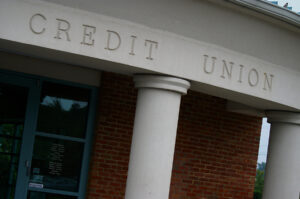Cynthia Rojas
September 20, 2014
Frustrated by high fees, disappearing rewards and a generally non-consumer friendly reputation, many Americans are considering breaking up with their bank. And oftentimes, the refugee consumer is taking their money to a local credit union. It’s an exodus of money from Wall Street to Main Street that appears to be gaining momentum. To talk about this trend, we’re welcoming Sonya McDonald, Vice President and Chief of Staff from Randolph-Brooks Federal Credit Union, to The Consumer Team. Our interview will air Saturday, September 20th at 5PM Central on 1080 KRLD Radio.
An product of 19th Century England and Germany, the credit union was invented by communities as a solution to either non-existent or onerous loan terms from the local bankers. The credit union was, in its simplest form, neighbors helping neighbors. Money was gathered into a central repository and loaned to its members so they could build their homes, businesses and dreams. The credit unions were non-profit and existed to serve its members. What a concept.
In our discussion of current day credit unions with Ms. McDonald, we’ll discuss the reasons behind the trend of consumers moving to credit unions from big banks. We’ll review the advantages of working with a credit union versus a bank (it goes well beyond just a lack of fees or better rewards) as well as how to select a credit union.
The trend of consumers, especially the middle class, breaking up with their bank is part of a larger discussion regarding big banks and why they are bad deal for consumers. If you’d like to get a deeper understanding of big banking in America, I recommend several books:
The Creature From Jekyll Island – G. Edward Griffin: Although the title suggests a science fiction novel, this book is hardly fiction. It’s about the formation of The Federal Reserve in 1911 on Jekyll Island, off the coast of Georgia. The book, which reads like a murder-mystery masterpiece, is sad and very troubling. After reading “Creature”, you’ll understand clearly the cartel that is Big Banking in America. You’ll understand their power and how it affects you as a citizen, taxpayer and a consumer.
The Big Short – Michael Lewis: Lewis is the author of several best-sellers including Money Ball, Liar’s Poker and Flash Boys. The Big Short is a very effective chronicle of the events that caused the economic crisis of 2007-2009. It vividly describes the mortgage meltdown along with the role that big banks played in the near destruction of our economy.
The Divide: American Injustice in the Age of the Wealth Gap – Matt Taibbi: Known for his writing in Rolling Stone Magazine, Matt Taibbi is able to connect the dots between income inequality in America and its impact on justice and our legal system. To be clear, this isn’t just another book about income redistribution, it’s an accurate accounting of how both the middle and lower classes of America are living in a much different America from the mega-uber-wealthy 1%. This is a book that will disgust you.
Editor’s Note: Pete Thomson has worked in broadcasting since 1972. Thomson is President/CEO of McQ Media, an advertising and media firm based in Dallas, TX. McQ Media works in the areas of consumer and business advocacy and produces The Consumer Team radio program.


